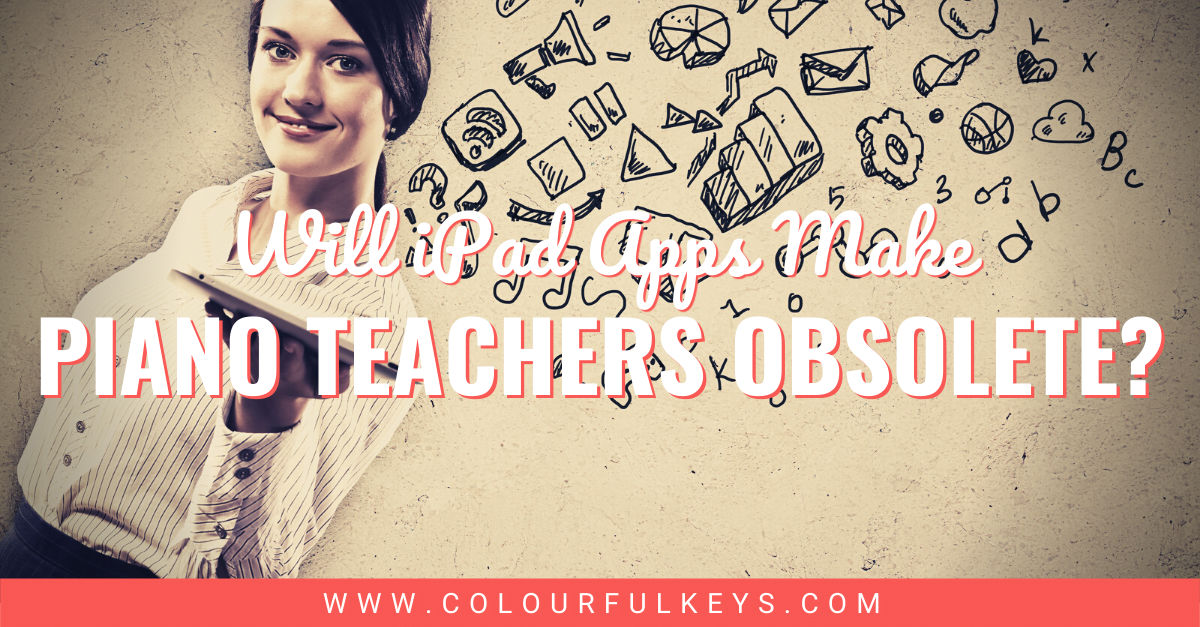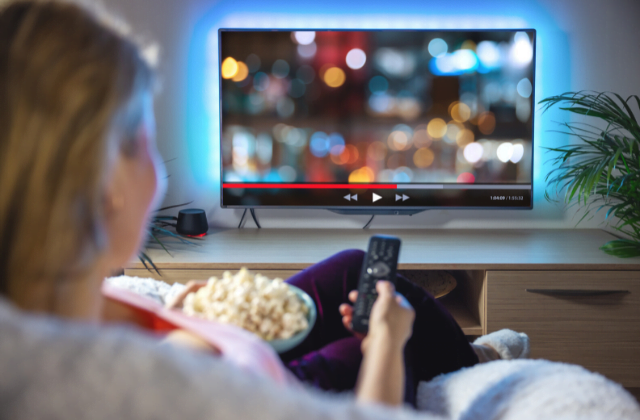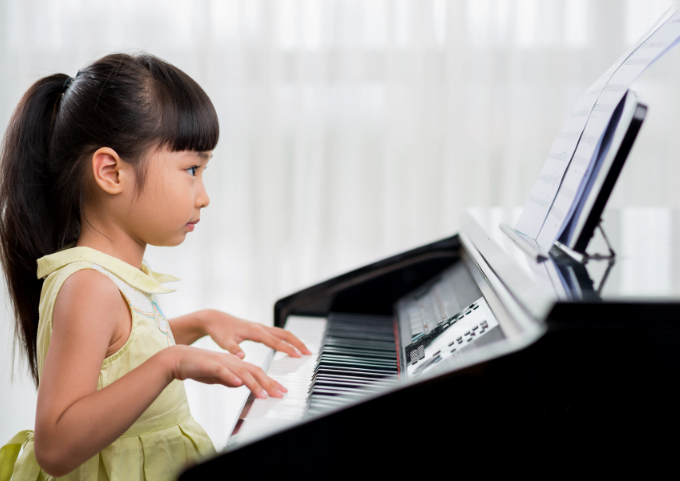
Joanna Shiel runs a multi-teacher piano school based in London. She loves tech and finding new ways to make both students’ and teachers’ lives easier. When not teaching, Joanna loves playing the dance machine in the arcade, enjoying a coffee at art galleries and discovering new hiking spots. Her favourite dessert is lemon meringue pie.
The world is changing. Learning the piano has never been easier. All you have to do is download an app and get started. Right? What does this mean for the humble piano teacher down the street? Are iPad apps coming to take our jobs?

You’ve probably heard of at least one piano learning app in the marketplace. Perhaps you’ve inherited a student who learnt the play through YouTube?
Learning to play piano has never been easier and more affordable than now. Almost everyone, worldwide, has access to a smartphone or tablet, and keyboards are easier and cheaper to access. It truly is a remarkable time to learn music.
But…where does this leave piano teaching as a profession?
When you can learn piano for $12 a month at any moment you choose, why would you ever invest in lessons with a piano teacher?
Blockbuster vs Netflix
Netflix was founded in 1997, at a time when Blockbuster ruled the video rental waves.
Back then, Netflix’s business model was this: You order your home movie, and they would send it in the post – hugely convenient and a time saver.
Blockbuster’s model relied on brick and mortar stores, where customers would select and take home the film themselves.
In 2000, savvy Netflix suggested a deal to Blockbuster. Buy Netflix for $50 million, and Nefltix would run the online part of Blockbuster.
Blockbuster refused.
What happened next?
Netflix saw that having an online platform would be the way of the future. Customers would come to really value being able to select what they wanted, when they wanted. Netflix prioritised the customer, what they wanted, what they were starting to use and how they were using it.

Over the next decade, Netflix outgrew Blockbuster – eventually becoming the huge success it is now. This is because Netflix knew they had to adapt to changing markets.
Had Blockbuster agreed to Netflix running the online portion of it’s business, well…perhaps we would now be choosing our next binge on Blockbuster.
How the heck does this relate this to piano teaching, you might ask? Keep reading…
The Big Wide World of iPad App Learning
There’s been an explosion over recent years in ways for students to self-learn via apps and YouTube.
Subscription-model apps have a huge library of songs, videos and catchy backing tracks to play along to. Students can learn to read and play music from popular and famous songs with just a tap on a screen.
Others may learn for free from YouTube or an online piano course.
Why are these apps so attractive to students and their parents? What do iPad apps promise?
The Appeal of Teaching Apps
Pay attention to the way apps are marketed. Apps commonly claim to:
- Include both pop and classical famous songs
- Get you playing fast
- Have lots of incentives such as stars, loud sounds and points
- Learn anytime and anywhere
- Analyse your playing and provide real-time feedback
- Get you learning to read straight away without “wasting time”
If we look more closely, apps:
- Appeal to a wide range of learning styles
- Are convenient and affordable
- Can be encouraging, supportive, exciting, engaging and interesting
- Are a good alternative if you’re not ready to invest in or not sure about piano lessons
What iPad Apps CANNOT Do
Here’s where it gets fun! Think about all the amazing things a piano teacher has to offer which music learning apps lack. We can:
- Expose music to students which they may love but haven’t experienced yet
- Be more efficient when using the right teaching methods
- Offer human validation, support and mentorship, which is more valuable and connecting
- Help the student learn efficient and effective practice strategies
- Move through material progressively and efficiently
- Make sure students develop healthy technique in a well-rounded and foundational way
- Be a great fit for our student
- Teach creative skills such as improvisation, composition and interpretation
Teacher vs iPad
How does your piano studio differ from that of apps? You might be surprised at the similarities between the 2, as well as the differences.
Piano Studio Community
Being part of a local community is often be a big factor in why families might choose to go with a piano studio over an app.
However, many apps now use facebook groups and outside forums. Users can share their videos at the click of a button, ask questions in the community and get feedback on their playing from hundreds of their peers and teachers.
Can we offer something similar?
Better yet, how can music studio teachers differentiate themselves?
Perhaps “community” in your studio means inviting parents over for a practice workshop with cake. Maybe it’s about playing for a local charity. What about taking part in a studio challenge or competition? Community might even mean creating performance groups in Facebook.
Technique and Individual Support
One thing which is very difficult to convey through apps is technique. Many of these apps teach you to play the right notes at the right time, but it’s rare to find a course with any focus on technique, or which provides feedback and individual correction.

Many people who self learn make a lot of mistakes in how they hold themselves, playing from the fingers rather than with a weighted arm. Sometimes their chair is too high or they’re sitting too close.
This is to be expected. It’s very rare that we hold our bodies in a relaxed and flexible state throughout the day, let alone when we’re trying something difficult like learning the piano.
Diversity and Moving Outside of the Music Bubble
Apps can teach your student the most popular song of the day, but may not necessarily show your student a piece outside of their own music bubble.
A Friend and Mentor
Piano teachers stay with students for a very long time, in a quite a unique and special circumstance. We become part of families, grow with children and learn and play together over several years.
We are witness to struggles both personal and professional within the vulnerable learning process.
Can an app offer that?
Exams, Competitions and Performances
Piano teachers are knowledgeable about exams and performances, and know best about which exam board, competition or performance to push for (or not) and when.
Advanced Piano
At the moment, apps can only show you so much on how to play a beginner song. It takes a live person to teach nuance and expression, to build a human connection with students and to encourage and inspire musicians with the teacher’s own musicality.
Be Less Blockbuster and More Netflix
As teachers, we know the value of a live music teacher. It’s obvious to us. Does that mean students automatically see the value in live piano lessons?
Sometimes, yes.
But a lot of the times, no.
I think we need to glean what appeals to students about popular apps, then tailor our studios accordingly.
It’s All in the Marketing
Yes, we all know that technique is super important. But does our student or parent know why? And, perhaps more importantly, do they care? Probably not as much as they care about their child actually enjoying the lessons.
I would argue that we have to hide the (very tasty when roasted with salt) broccoli in the soup.

Think about what’s important for students and parents, and tout how we can solve that for them.
What does the future hold?
I predict that music learning apps are going to get more sophisticated as this industry develops. If we dig our heels in and refuse to change, iPads and YouTube will surely replace music studio teachers.
The days of a private music teacher sitting next to you and turning the page are shifting. We have to be mindful of this change and adjust our teaching accordingly to make sure our studios stay relevant.
If you can’t beat ’em, then join ’em! Visit the technology section of Nicola’s “Planning Lessons” hub page to learn how you can incorporate apps into your live studio lessons.
What do you have to offer which iPad apps can’t match?
Let me know in the comments below.
